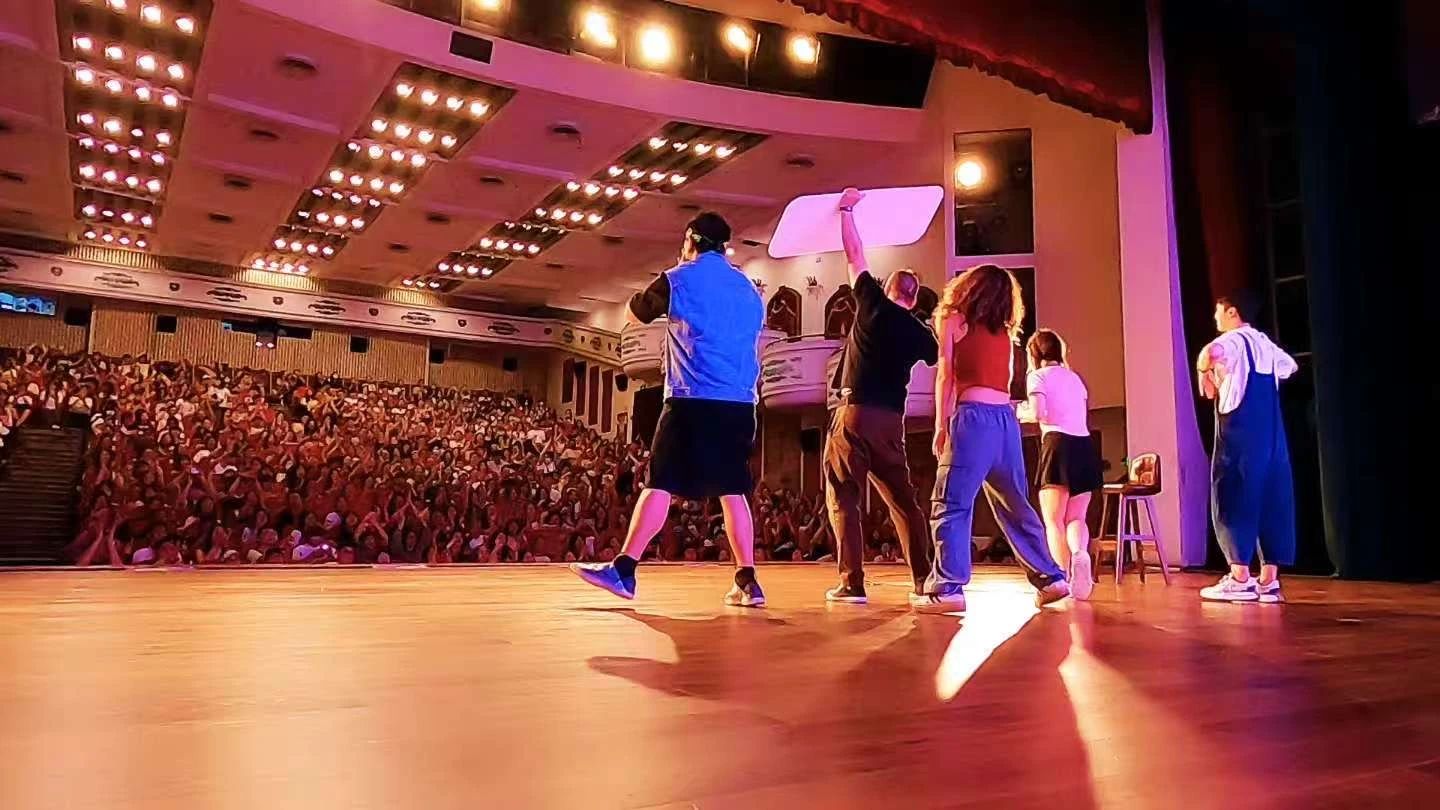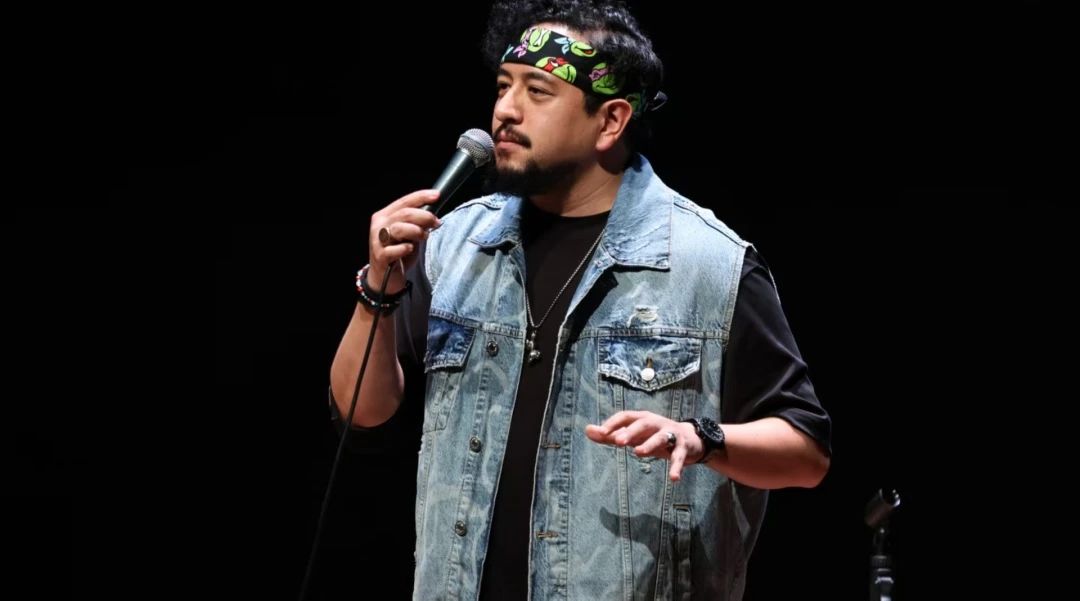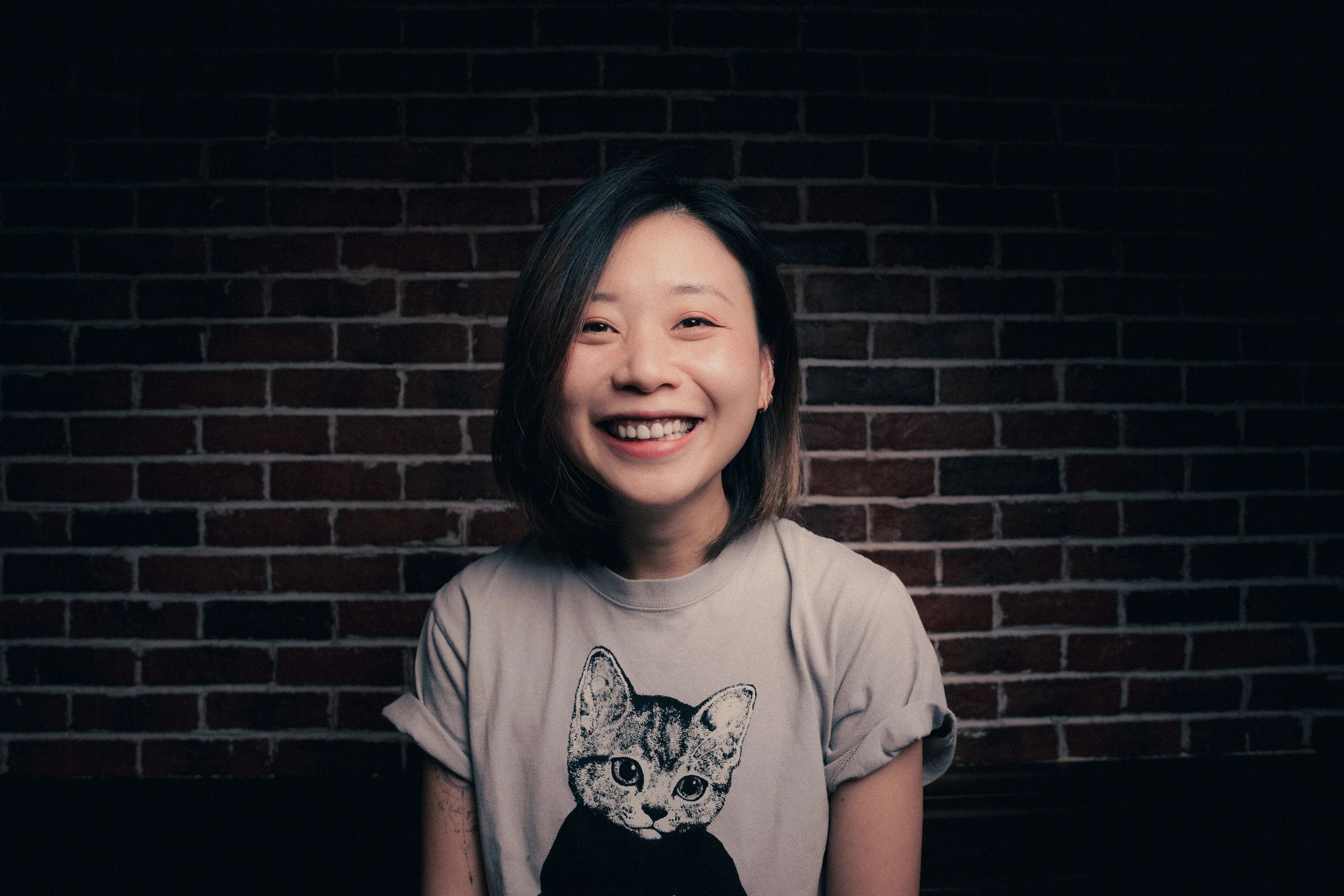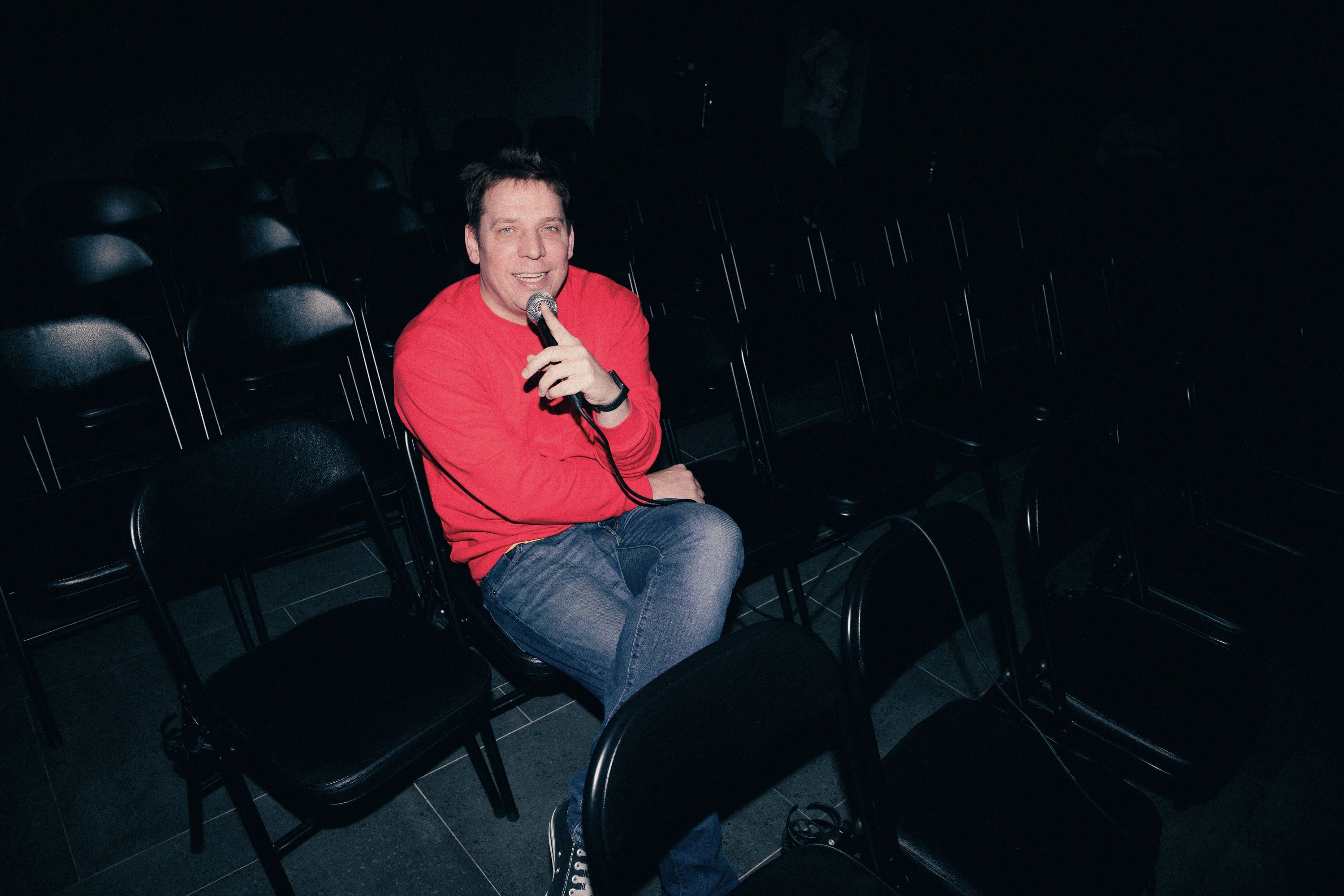Shortly before their sold-out show at Spicy Comedy in Xintiandi on a Wednesday evening,
chatted with three comedians who call the city home.
Boasting different backgrounds and unique styles, the trio found their way to fame in different ways, whether it was going viral on social media or simply barging onstage and being handed the mic. One factor unites them, however:
All have an arsenal of jokes that specifically allude to Shanghai, and that draw from life in the city in surprising, hilarious ways.

Frankie A
👤 Nickname: “Duolingo Bird”
🗺️ City of birth: Hong Kong

Frequently filling the shoes of comedy show host, Frankie is often the first — and the last — comedian audiences see onstage each night.
With his trademark exercise headband, messy hair, and “uncle beard,” the iconic member of the Spicy Comedy team also offers his own (often sold-out) solo shows, which show off his — slightly questionable — command of over a dozen languages.
Lately, having recently lost two kilos, he’s also become Spicy’s own “expert on men’s health,” much to the frustration of the other comedians.
You’ve mentioned that your family is half Lebanese, half Chinese. How does this influence your comedy?
Frankie A:
I’ve got a complicated background. A lot of the time, I tell people I’m ‘half dumpling, half falafel.’
Since my family is from Hong Kong, that’s an important part of my act. Hong Kong music and movies are really popular, especially stuff from the ‘70s and ‘80s, so everybody gets references to old movies and stuff like that.
I also speak a lot of languages, and since I do crowd work, I like to combine them and find something that fits every audience member. We had a group from a company that came for team building once, and they literally had people from seven races. I just went down to each one and roasted them, and then did call-backs back and forth. That’s some crazy language practice, but it’s a lot of fun.
How do you adapt your comedy to Shanghai, where many audience members are likely listening in a second language?
Frankie A:
Local stuff works better — talk about how buying a house in Pudong sucks, and that gets people excited and laughing.
Say something about racism, you might not get a big reaction like in America.
The problems people face can be funny.
Or relationships lately, because people are finding it hard to date.
Punching up is always funny. Standing up to the more privileged, like bosses or celebrities. You give the people a voice like you’re fighting on their behalf, and that’s great.
What do you love about doing comedy?
Frankie A: It’s an amazing creative outlet.
Comedy is like cooking for people and actually watching them taste your food, so you get this immediate reward. You say something and people laugh, and it feels good.
You Baiwan
👤 Nickname: “New Bee”
🗺️ City of birth: Shanghai

After launching her career as a virtual English teacher and going viral, You Baiwan turned to standup comedy just two years ago.
This is all the more impressive as, according to Frankie, “She has more followers than I have views.”
As a local Shanghainese, Baiwan’s comedy often shines the spotlight on aspects of local life that are familiar to many members of the audience, as well as her experiences as an overseas student
How did you find your way to stand-up comedy?
You Baiwan: At first, I didn’t even know what standup comedy was.
One day during a lunch break, I watched a video of Ali Wong and found it really funny. I was like, I wanna look pretty on stage and say funny stuff and make people laugh.
At first I did social media just for fun, because everybody else was doing it. I was teaching English words and then I got fans. I started making jokes about Shanghai bees and stuff, and people seemed to find it funny, though at first I didn’t want to call it comedy. It was easier to make them laugh if their expectations were lower — I didn’t want my fans to come and think I wasn’t funny. People liked it on social media, but it’s hard to get a read on how funny the jokes are in real life.
Where does your material come from?
You Baiwan: Sometimes it happens when I travel. Like, I was a very typical Chinese student. For example, I’d feel tension whenever I went shopping and some British saleswoman would try to engage in small talk — that really stresses me out. I told other people this and they thought it was funny.
I realise
d my day-to-day stories could make good jokes.
What is your goal as a comedian?
You Baiwan: At first I just said to myself — I’m already hot, so let’s be funny too. But on a more serious note, I like making people laugh. And inviting my friends to come and watch me. Then I’ve also got something to post on my social media channel. It’s pretty cool.
Ian Badenhorst
👤 Nickname: “OG from South Africa”
🗺️ City of birth: Durban

As the most senior member of the trio, Ian Badenhorst has been doing comedy in Shanghai for over 15 years.
More recently, he’s been offering his own sold-out solo shows, where he tells stories about his life in both Shanghai and South Africa.
According to the others, Ian is the “Iron Man of English comedy in Shanghai, its laugh guardian and protector during its darkest days” — though this was clearly just their way of making fun of his age.
Ian, you’ve been doing this a long time. Can you tell us something about the history of English comedy in Shanghai?
Ian Badenhorst:
There’s been English comedy in China as long as there have been foreigners.
Local comedy started with Kung Fu Comedy Club around 2010, though they still focused on bringing famous comics to open for them, especially people from New York or Los Angeles, USA.
Then Spicy Comedy started in 2021 — the first local comedy club to purely do English — and they are truly legit.
Where does your material come from?
Ian Badenhorst: I just pay attention to things. The biggest skill is seeing something and writing it down so later you can tell what’s funny about it.
Sometimes you just write a word like ‘penguins,’ and two days later you realise the joke — they’ve got fat ankles.
What is different about comedy in China compared to overseas?
Ian Badenhorst: Spicy Comedy has like 15 people, and we’re very lucky with how nice everyone is. Everybody is close-knit. There’s no drama. I mean, occasionally Frankie gets out of line, but other than that, everything is great.
In the West, comics have an agent and a manager. Comedy is very individualistic. But here we’re all part of a group. We’re all in it together.

